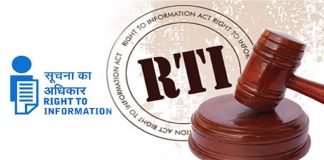INTRODUCTION
In recent years, social media users’ concerns about their privacy have increased. Data breaches have shocked many users, forcing them to reconsider their social network interactions and the security of their personal information. The tragic storey of Cambridge Analytica, a consulting firm, is a case in point. The business used the personal information of over 50 million Facebook users to sway the 2016 presidential election in the United States. This and other examples have eroded public trust, leaving many people questioning if they have lost control over their personal data.
What are the ways that social media is breaching people’s privacy?
- Social tracking
- Data collection and analysis
- Information leaks
- Phishing
- Malware (Malicious software)
- Bot attacks
UNDERSTANDING SOCIAL MEDIA PRIVACY ISSUES
What are the main concerns of social media users? Are their fears well-founded? The pervasiveness of social media in people’s life is usually the source of these concerns. Social networks are used by 45% of the world’s population. According to data compiled by Hootesuite, this translates to 3.48 billion people using some type of social media. These links can put consumers at risk in a variety of ways. When personal information slips into the wrong hands, it can have disastrous effects. According to the Pew Research Center, 13% of Americans have had their social media accounts hacked by an unknown individual. Among other things, such breaches might result in stolen information and forced shares that send followers to malware. In general, social media platforms, which gather and retain vast amounts of personal data with no regulation from the government, are appealing targets for criminal actors looking to commit fraud and crime using that data. Another growing issue, worsened by the Cambridge Analytica data hack, is how bad actors gain access to private data on social media platforms and elsewhere and use it to sway public opinion for the advantage of a select few.
Social Media Privacy Threats
- Instagram accesses your location
When users posted a new photo or video to their feed, Instagram recently added a feature that allowed them to tag their location. This might be a nice feature for business owners or individuals who want to brag about their recent trip to Paris, but it’s crucial to be cautious and aware of the implications. Instagram is also able to track where you spend your time. This information is saved, which is why you may see adverts tailored to your location or suggested locations when uploading a photo.
- Facebook apps leaking personal data
Facebook apps are leaking personally identifiable information about consumers who use them to ad and tracking businesses. And without the users’ knowledge. Consumers’ personally identifiable information is being leaked by Facebook apps to ad and tracking companies. And all without the users’ consent.
- Twitter privacy breach
Twitter’s Tailored Audiences advertising service allows businesses to target adverts to specific customers based on their own marketing lists. For example, an advertiser might have a customer’s phone number and email address. They can find a match by comparing this information to Twitter’s personal data and serving targeted adverts to that user on Twitter. The two-factor authentication mechanism, which is a popular means for users to authenticate and log into their accounts, is where the Twitter privacy issue begins. They agree to receive an SMS message to their phone number or an email to their email address to verify that an account truly belongs to them, and then use the code contained in that message to unlock the account.
While you are using your social media accounts, someone is watching you and your accounts. These are social media hackers who get access to your accounts by obtaining your login credentials. There are numerous more dangers and risks associated with social networking in addition to this one. Having a thorough understanding of all of the hazards and dangers involved with social media outlets will benefit you and your company in the long run.
To share content with our friends, we all use the “Like,” “Tweet,” “+1,” and other buttons. These social widgets, on the other hand, are useful tracking tools for social network websites. They function in conjunction with cookies, which are little files saved on a computer that allow a website to monitor a user across several sites, and which social websites insert in browsers when you create an account or log in, allowing them to recognise you on any site that utilises these widgets. As a result, your online shopping habits and hobbies can be easily traced, and your online privacy can be compromised.
CONCLUSION
The most profitable and effective way to engage new people and establish online communities is through social media. However, as part of your governance plan, you must identify, monitor, and manage the risk associated with your varied tactics on various social media platforms in order to be effective. Using any of the social media networks without taking precautions could put you in significant danger. In the long run, it will hurt your personal or business reputation. Everyone needs social media to live, and no one can live without it. Everyone is eager to be online, yet some are vulnerable to undesired hazards and concerns. Simply follow the steps and be on the lookout for hackers and bogus account users. Enjoy a life free of scams and frauds on social media.
Article By: Paridhi Agrawal
REFRENCES
- https://www.fourview.com/blog/how-is-social-media-invading-your-privacy/
- https://sopa.tulane.edu/blog/key-social-media-privacy-issues-2020
- https://bfsi.eletsonline.com/social-media-and-privacy-risk/
- https://www.bullguard.com/bullguard-security-center/internet-security/social-media-dangers/privacy-violations-in-social-media
- https://learn.g2.com/instagram-privacy








